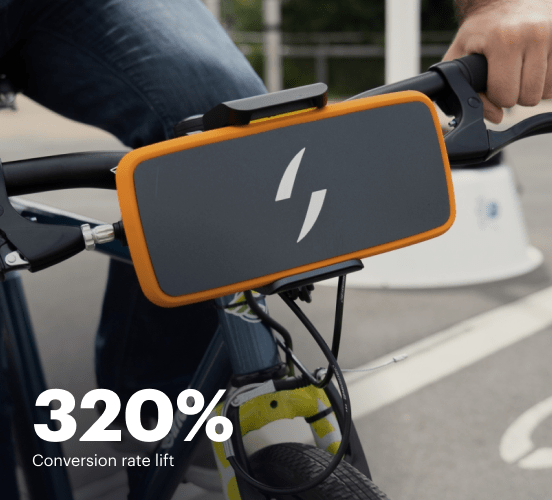Pardot vs. Instapage: choose the right tool to elevate your website creation experience
Transitioning from Pardot to Instapage allows you to deliver ad-to-page experiences to visitors. With an intuitive drag-and-drop builder, experimentation, optimization, reporting, and growth tools — you have everything you need to create ad-relevant landing pages that convert.
Get startedSee how Instapage stacks up against the competition
| Feature | Instapage | Other builders |
| Drag-and-Drop Tools | ||
| Conversion-optimized templates | ||
| Manual and AI-powered A/B Tests | ||
| AI content suggestions | ||
| Popups and sticky bars | ||
| Canvas and grid blocks | ||
| Reusable and global elements | ||
| Form and popup builders | ||
| Built-in Heatmaps | ||
| Central analytics dashboard | ||
| Ad-to-page personalization and collections | ||
| Contacts, lists, and email | ||
| Dedicated, full-service CRO experts | ||
| Enterprise-ready platform |
Leading the way in building high-performing landing pages





Why Instapage is the smarter choice for your campaigns
Get everything you need to build, scale, and optimize high-converting landing pages—without coding.
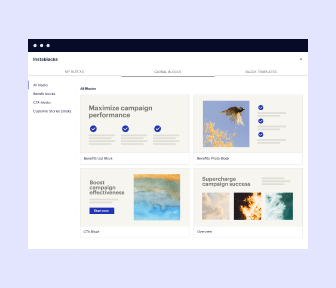
Easier page building without coding
Instapage offers a flexible and seamless page creation experience with a library of 500+ conversion-focused layouts, Instablocks®, a drag-and-drop builder, and AI content generation. With technologies like Thor Render Engine®, you can create on-brand, mobile-responsive landing pages that load quickly and start converting during initial visitor clicks.
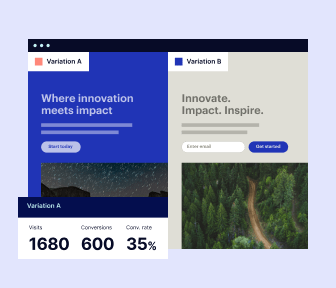
More insights — better results
Instapage lets you see in detail how each landing page experience and variation is performing so you can make targeted changes that boost page conversions. Use heatmaps for a better understanding of on-page activities, run A/B tests and AI-assisted experiments, and then track and evaluate results within robust analytics dashboards.
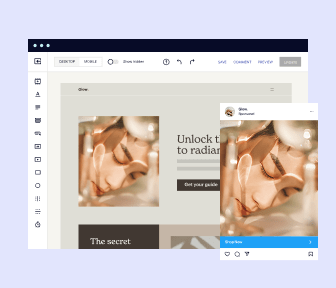
More personalized experiences
Instapage lets you quickly create high-performing landing pages tailored to each of your ad campaigns. Deliver personalized experiences for distinct audiences using dynamic text replacement. Effortlessly align specific advertisements to unique pages with AdMaps. Monitor audience-level metrics using our advanced data tools.
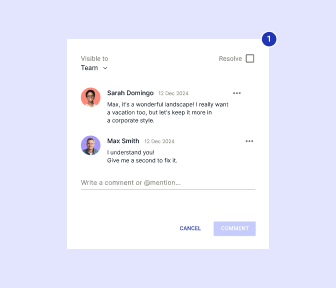
Built-in collaboration
Instapage collaboration capabilities bring your entire team together to speed up the process of landing page review, approval, and launch. No more frustrating and unnecessary revisions or edits scattered across emails. Provide instant feedback, conduct real-time page edits, and securely share your pages with outside stakeholders.
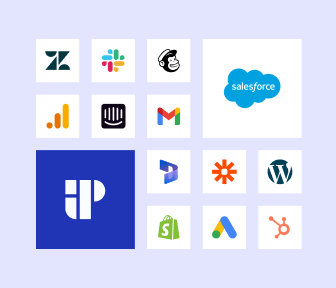
Free up time for your business
Invest time into business growth, not busy work. Launch landing pages faster with reusable forms and templates. Build once, reuse forever.
Explore all integrations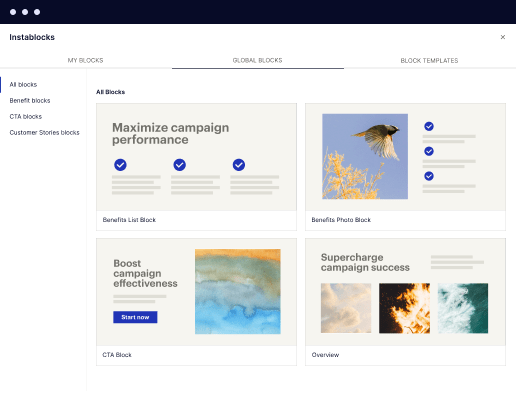
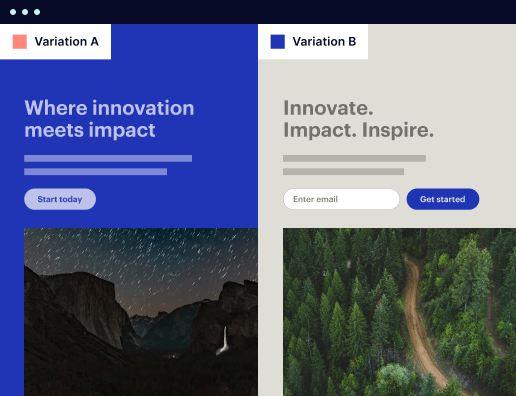
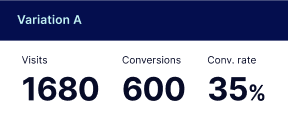
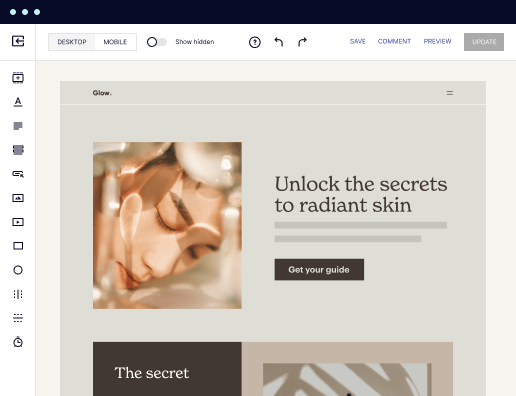

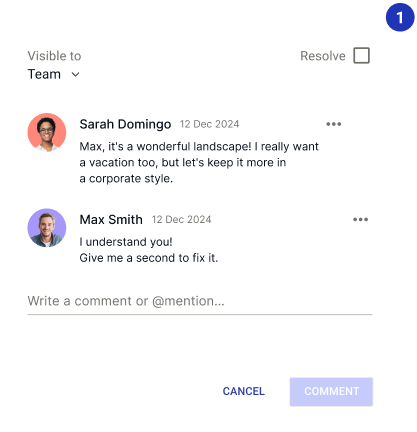
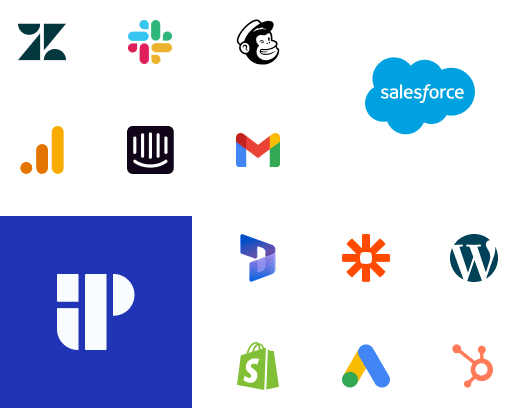
Easier page building without coding
Instapage offers a flexible and seamless page creation experience with a library of 500+ conversion-focused layouts, Instablocks®, a drag-and-drop builder, and AI content generation. With technologies like Thor Render Engine®, you can create on-brand, mobile-responsive landing pages that load quickly and start converting during initial visitor clicks.
More insights — better results
Instapage lets you see in detail how each landing page experience and variation is performing so you can make targeted changes that boost page conversions. Use heatmaps for a better understanding of on-page activities, run A/B tests and AI-assisted experiments, and then track and evaluate results within robust analytics dashboards.
More personalized experiences
Instapage lets you quickly create high-performing landing pages tailored to each of your ad campaigns. Deliver personalized experiences for distinct audiences using dynamic text replacement. Effortlessly align specific advertisements to unique pages with AdMaps. Monitor audience-level metrics using our advanced data tools.
Built-in collaboration
Instapage collaboration capabilities bring your entire team together to speed up the process of landing page review, approval, and launch. No more frustrating and unnecessary revisions or edits scattered across emails. Provide instant feedback, conduct real-time page edits, and securely share your pages with outside stakeholders.
Free up time for your business
Invest time into business growth, not busy work. Launch landing pages faster with reusable forms and templates. Build once, reuse forever.
Explore all integrationsGet started with Instapage in a few steps
-
Create your Instapage account
Start with Instapage by signing up via Google or your email. You'll get access to a free 14-day trial to discover Instapage capabilities. Feel free to cancel anytime during the 14-day trial if you decide that our product is not suitable for your business. -
Build and personalize your page
Create your first landing page from scratch or choose a template from 500+ customizable layouts. Use the drag-and-drop builder to add page elements, fonts, and backgrounds, refine content with AI, or add custom HTML, Javascript, and CSS. -
Review and make edits
Collaborate on page designs and streamline review processes. Invite your team members and stakeholders to review, edit, and provide feedback on your landing page. Collaborate knowing your page is confidential and only accessible to authorized users. -
Publish and track page performance
Publish your page to a domain or custom URL. Connect your pages to the ads you've created and track page performance within the analytics dashboard, run A/B tests and AI experiments, analyze results, and continuously optimize your landing page to maintain high conversions.
The Ultimate Showdown: Instapage vs. Pardot
In the expansive realm of digital marketing, where every click counts and conversions are king, making the right choice in landing page software can make a world of difference. Today, we’ll pit two heavyweights against each other: Instapage and Pardot. As brands strive to optimize their online presence, understanding the strengths and weaknesses of these platforms is essential for marketers. This article focuses on the distinctions between these industry leaders, emphasizing their abilities to reduce costs, enhance conversions, and create personalized landing page experiences that not only capture attention but also foster brand trust and customer loyalty. Join us as we navigate this important decision-making process and empower you with the insights to choose the best fit for your marketing ambitions.
Introducing the Contenders
Pardot, a prominent player in the marketing automation space, is known for its comprehensive tools designed for B2B marketers. Its strong reputation is supported by Salesforce integration, which offers robust features for managing leads and nurturing relationships. In contrast, Instapage is a specialist in landing page creation, providing marketers with the tools they need to create high-converting pages without the need for extensive coding knowledge. Its focus on optimizing landing page experiences has made it a go-to choice for businesses aiming to increase conversion rates and deliver relevant content quickly. By analyzing the strengths of both platforms, marketers can better understand which aligns with their strategies and objectives.
Ease of Use: Who Wins?
Pardot: User Interface Unpacked
Navigating Pardot’s interface can present a steep learning curve for some users. While it offers a plethora of features, those new to marketing automation might find its complexity overwhelming. The dashboard provides a range of visual analytics and reports, but understanding how to interpret the data effectively can take time. Additionally, setting up campaigns, automations, and tracking can pose challenges for those unfamiliar with the platform. Despite its advanced capabilities, the plethora of options available can sometimes lead to confusion instead of clarity. Organizations should prepare for a learning phase before fully appreciating what Pardot has to offer.
Instapage: Simplicity Redefined
Instapage, on the other hand, shines when it comes to ease of use. Crafted with marketing professionals in mind, the platform features a drag-and-drop interface that enables users of all skill levels to create landing pages efficiently. Marketers can choose from a wide selection of templates, enabling them to design pages that align with their brand aesthetics without needing any coding expertise. Furthermore, Instapage’s collaboration tools allow teams to work together seamlessly, making it easy to iterate designs and optimize campaigns. The user-friendly nature of Instapage ensures that marketers can focus on driving results rather than getting bogged down by technical challenges.
Performance Comparison: Speed and Efficiency
When it comes to performance, both platforms have unique strengths. Pardot excels with its marketing automation tools that allow for detailed tracking and analytics of campaign performance, helping marketers refine their strategies over time. However, Instapage stands out with its superb landing page loading speeds. In today’s digital environment, fast-loading pages are critical for conversions. A second’s delay can significantly drop conversion rates. Instapage ensures that its pages load swiftly, providing a smooth user experience that can directly impact the bottom line. Users looking for high-speed landing pages with advanced customization might find Instapage offers a more performance-oriented solution.
Integration Capabilities
- Pardot offers seamless integration with Salesforce and a variety of other marketing tools.
- Instapage connects effortlessly with platforms like Zapier, HubSpot, and Google Analytics.
- Both platforms drive data-sharing efficiencies, but Pardot shines in CRM integration.
Analytics Mastery: Tracking Performance
Analytics is crucial for any marketing campaign, and that’s where both platforms showcase their strengths. Pardot offers a dashboard filled with detailed metrics and engagement data, enabling teams to track leads and measure campaign effectiveness. However, Instapage also presents powerful analytic tools that dive deeply into landing page performance. Users can glean insights into visitor behavior, conversion rates, and more, helping tailor future campaigns. With Instapage, marketers can continuously optimize their pages based on real-time data, suiting their efforts to enhance the user experience and drive conversions further.
Loading times can make or break digital success in a fast-paced online world. Instapage takes this aspect seriously and ensures its landing pages are optimized for speed. By minimizing loading times, Instapage users can capture and convert leads more effectively, establishing brand trust and fostering customer satisfaction.
Support Systems: Navigating Challenges Together
Customer Support Responsiveness
In times of need, strong customer support can make a world of difference. Pardot offers various support options, including a help center, community forums, and tailored assistance for enterprise users. However, waiting times for support queries can vary, and users sometimes report slow responses. Conversely, Instapage prioritizes customer support with resources like live chat, email tickets, and a rich knowledge base. Users generally find Instapage’s support team responsive and willing to assist, ultimately enhancing the experience as they work through challenges.
Community Engagement and Resources
Community support is another essential dimension in this comparison. Pardot boasts a dedicated user community with forums, tutorials, and webinars designed to assist marketers in maximizing the platform’s potential. Meanwhile, Instapage also fosters a vibrant community, with ample educational resources aimed at helping users enhance their landing page strategies. This vibrant resource ecosystem enables marketers to continually grow, adapt, and succeed in the ever-evolving digital landscape. Knowing that support is readily available empowers users on both platforms to explore their capabilities thoroughly.
Pricing Insights: What’s the Cost?
Pricing strategies require honest evaluation. Pardot typically targets larger enterprises, which can lead to higher pricing tiers that may be out of reach for small businesses. However, it offers a robust set of features justifying its costs. Instapage presents flexible subscription options designed to cater to a broader audience, making it accessible for small to medium-sized businesses. Additionally, both platforms may offer free trials, allowing users to analyze capabilities before committing financially, which is critical for budget-conscious marketers. Understanding the investment required is pivotal for informed decision-making.
In conclusion, choosing the right platform goes beyond mere pricing. Features, usability, integrations, and support are key components that can elevate marketing efforts. An in-depth analysis of these factors can reveal which platform provides more value for your unique business needs, ensuring you’re investing wisely in your marketing initiatives.
The Final Call: Who Takes the Crown?
As we near the conclusion of this comparison, it’s evident that both Instapage and Pardot have distinct strengths that cater to different marketing strategies. Pardot appeals strongly to B2B marketers with its robust CRM integrations and detailed analytics capabilities, making it an ideal choice for organizations focused on lead nurturing. In contrast, Instapage empowers marketers with its ease of use, fast-loading pages, and effective landing page optimization tools that can boost conversion rates. Ultimately, the winner of this duel depends on your particular goals, team skills, and budget requirements.
To wrap it up, selecting the right platform should align with your marketing objectives and priorities. Instapage could be a game-changer for those seeking a simpler, more effective way to create landing pages that drive conversions and enhance customer loyalty. We invite you to experience Instapage for yourself and witness firsthand how it can transform your marketing efforts and ultimately contribute to your brand's success.

